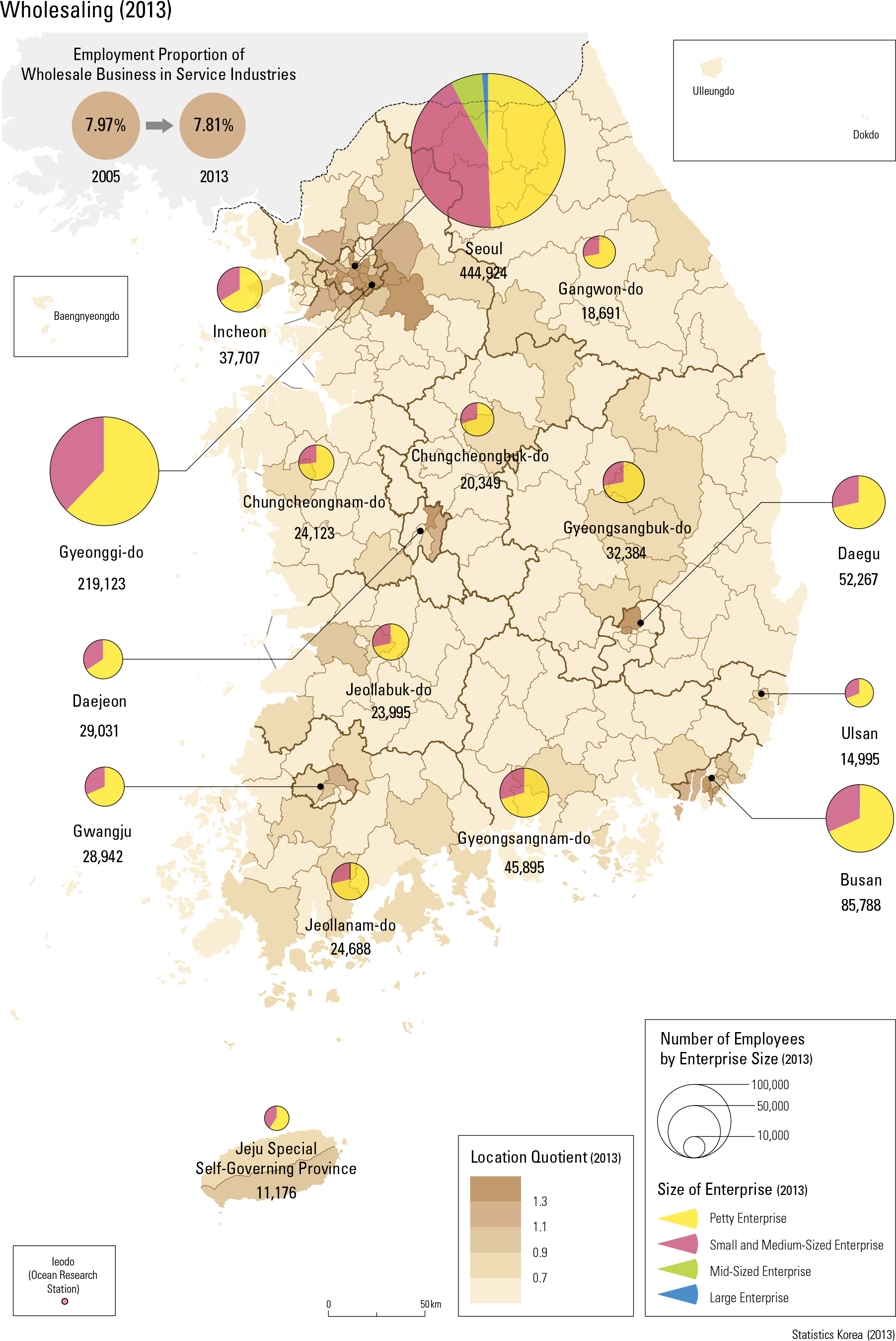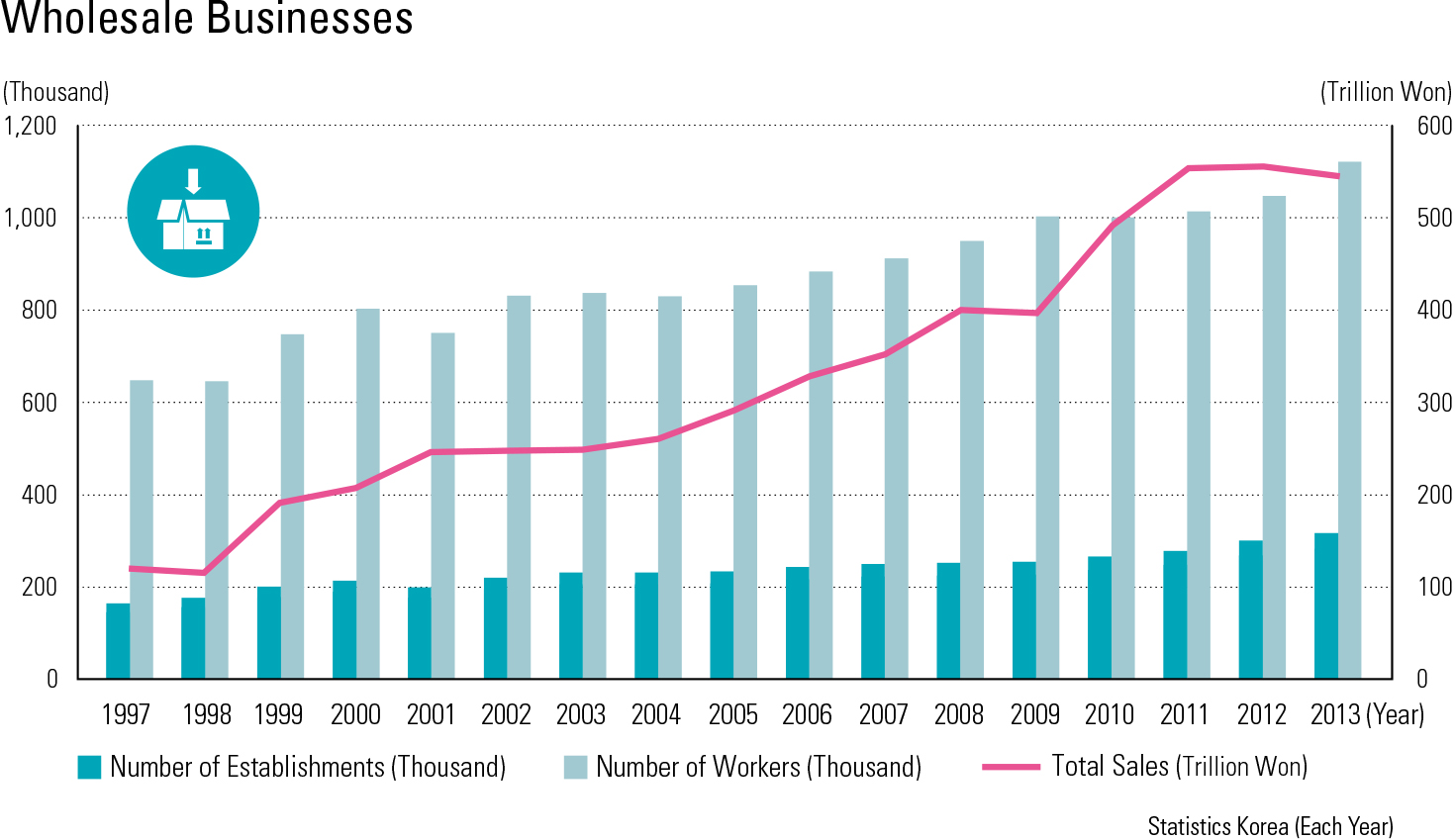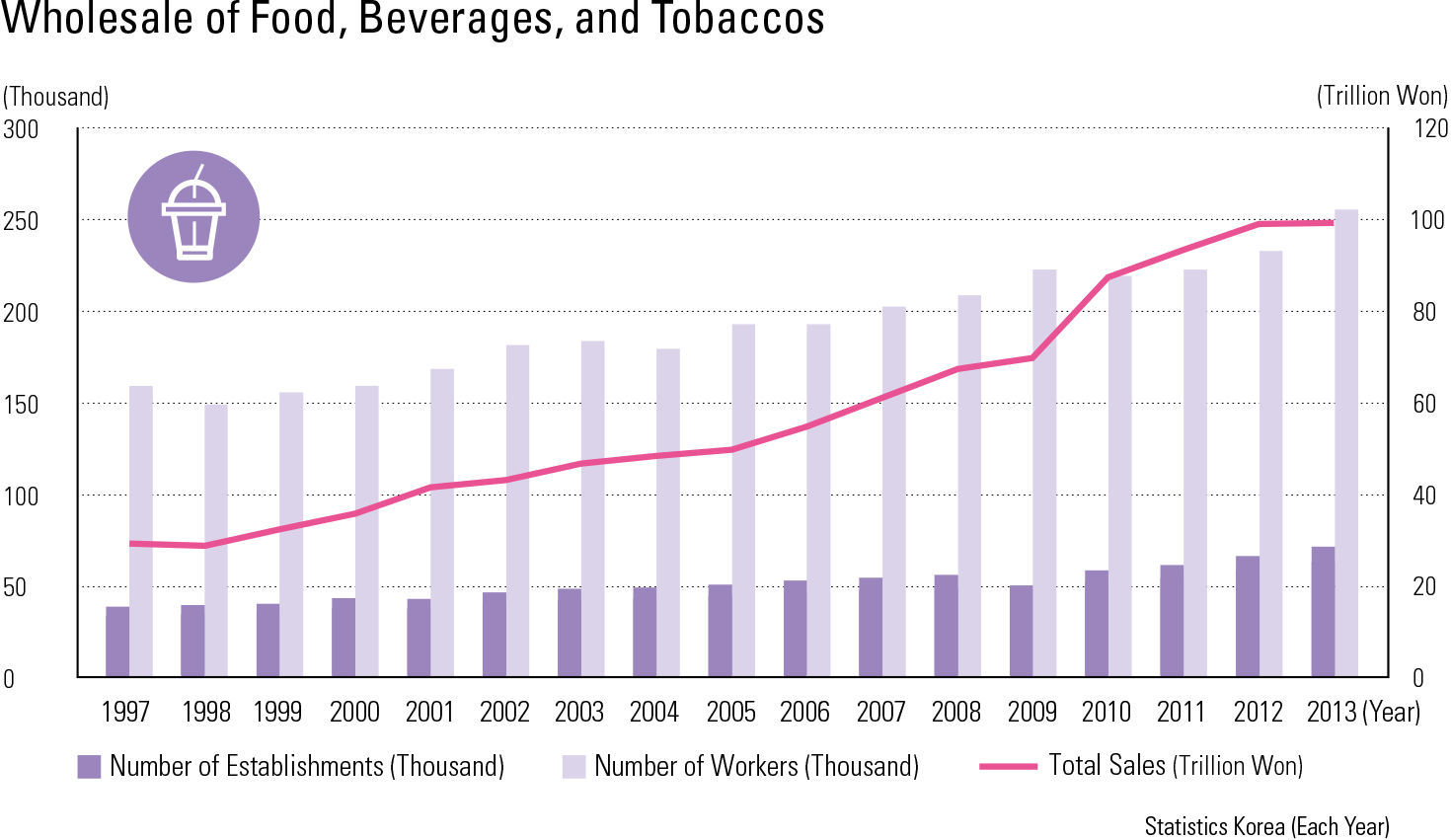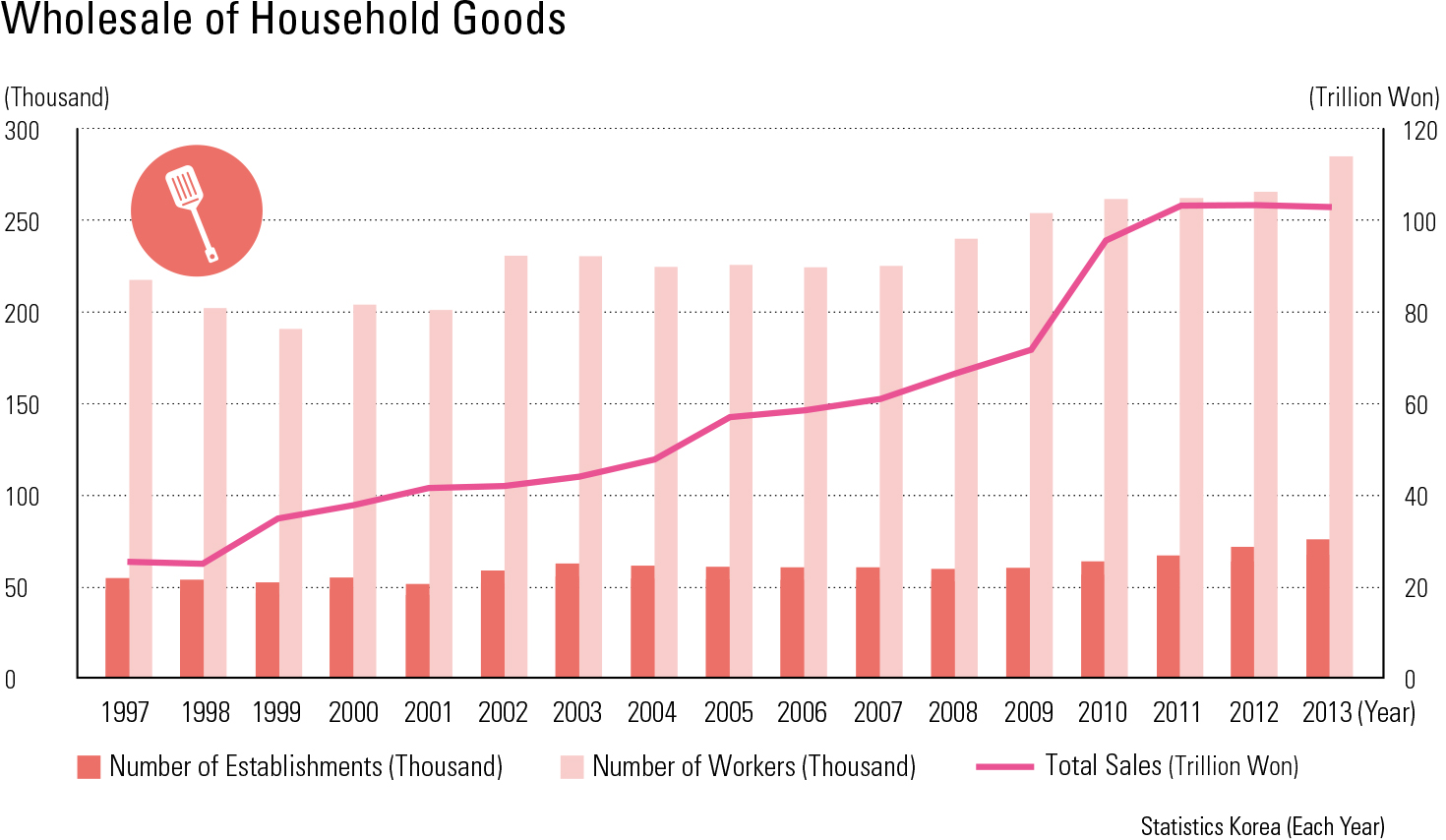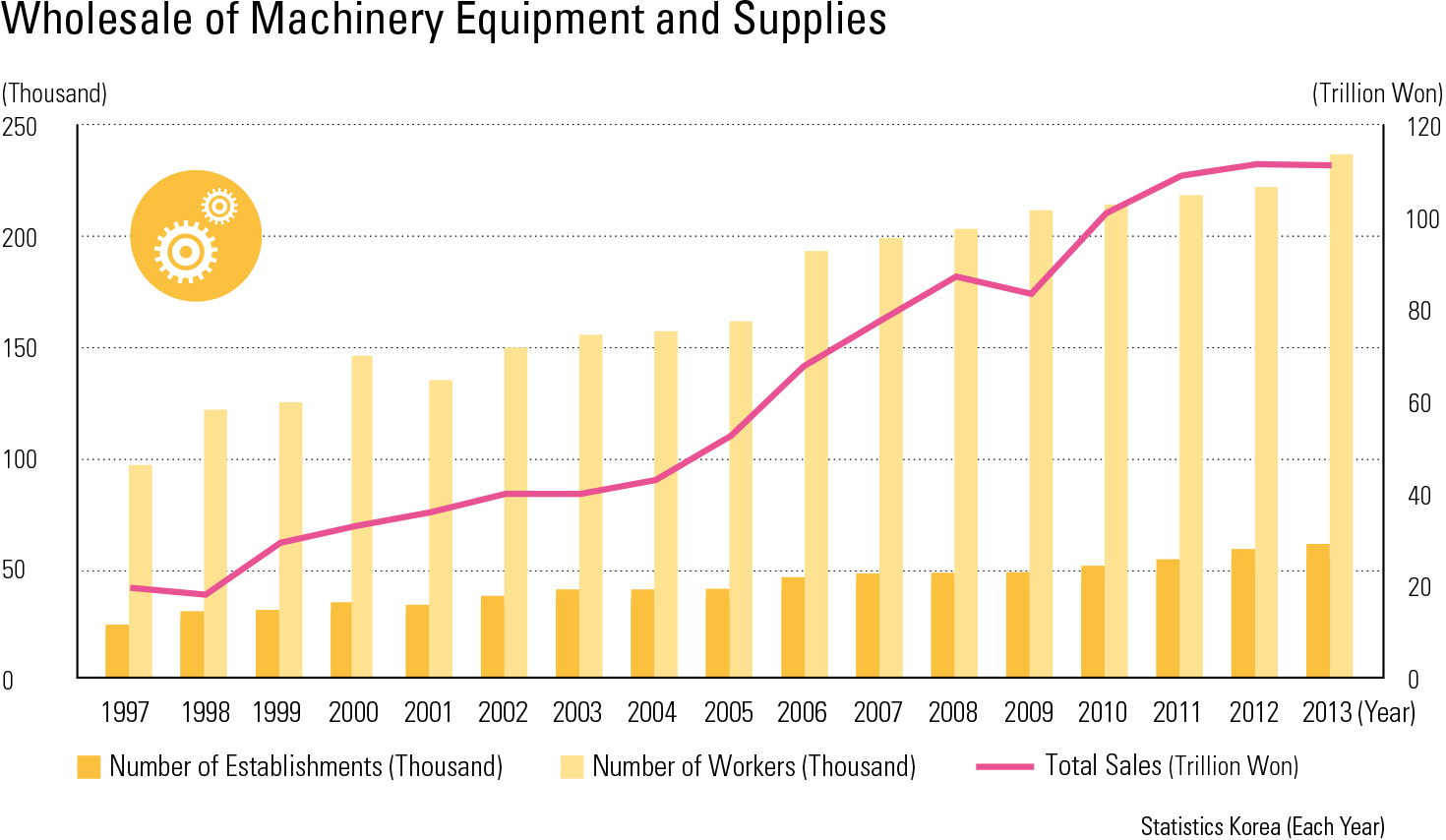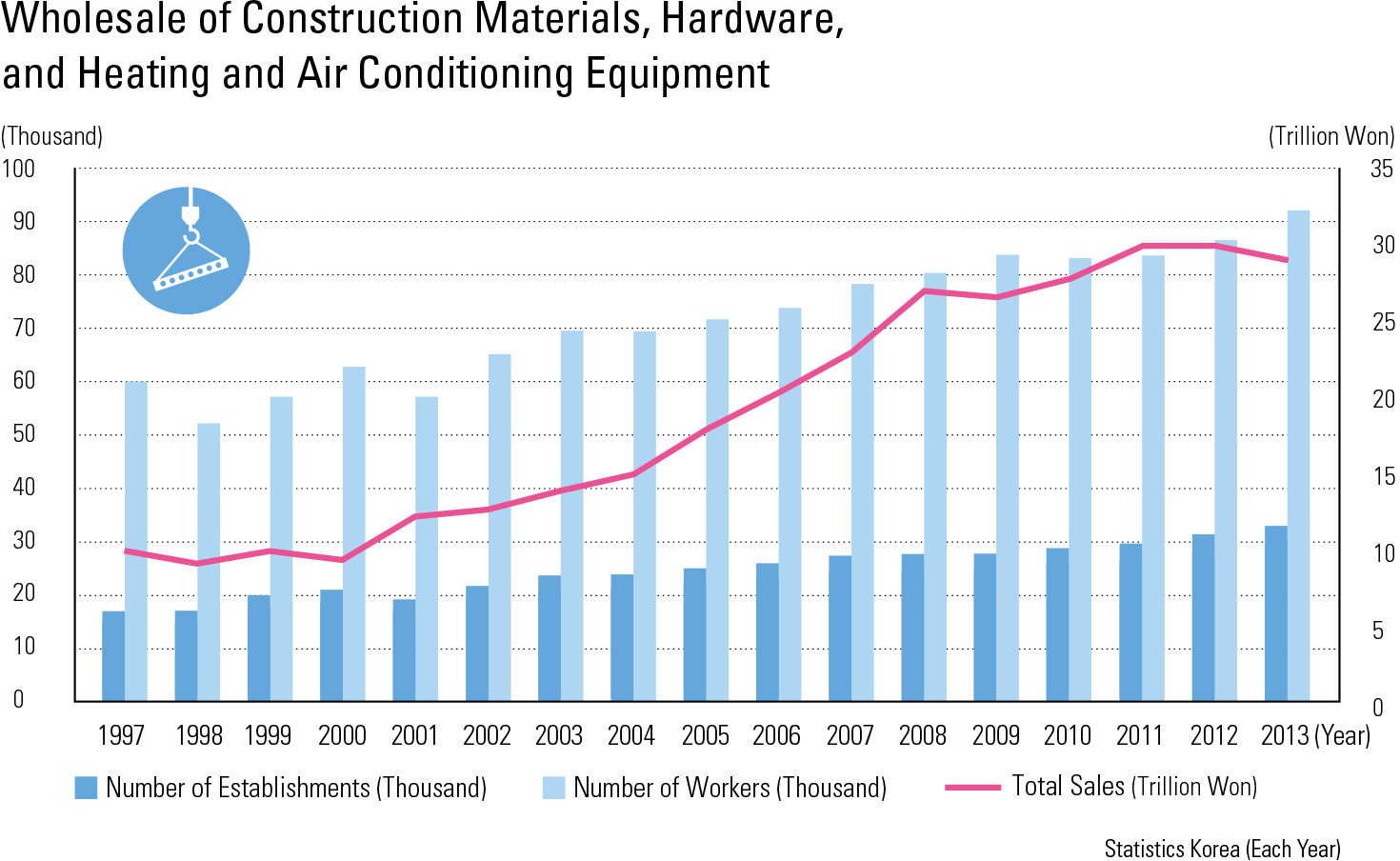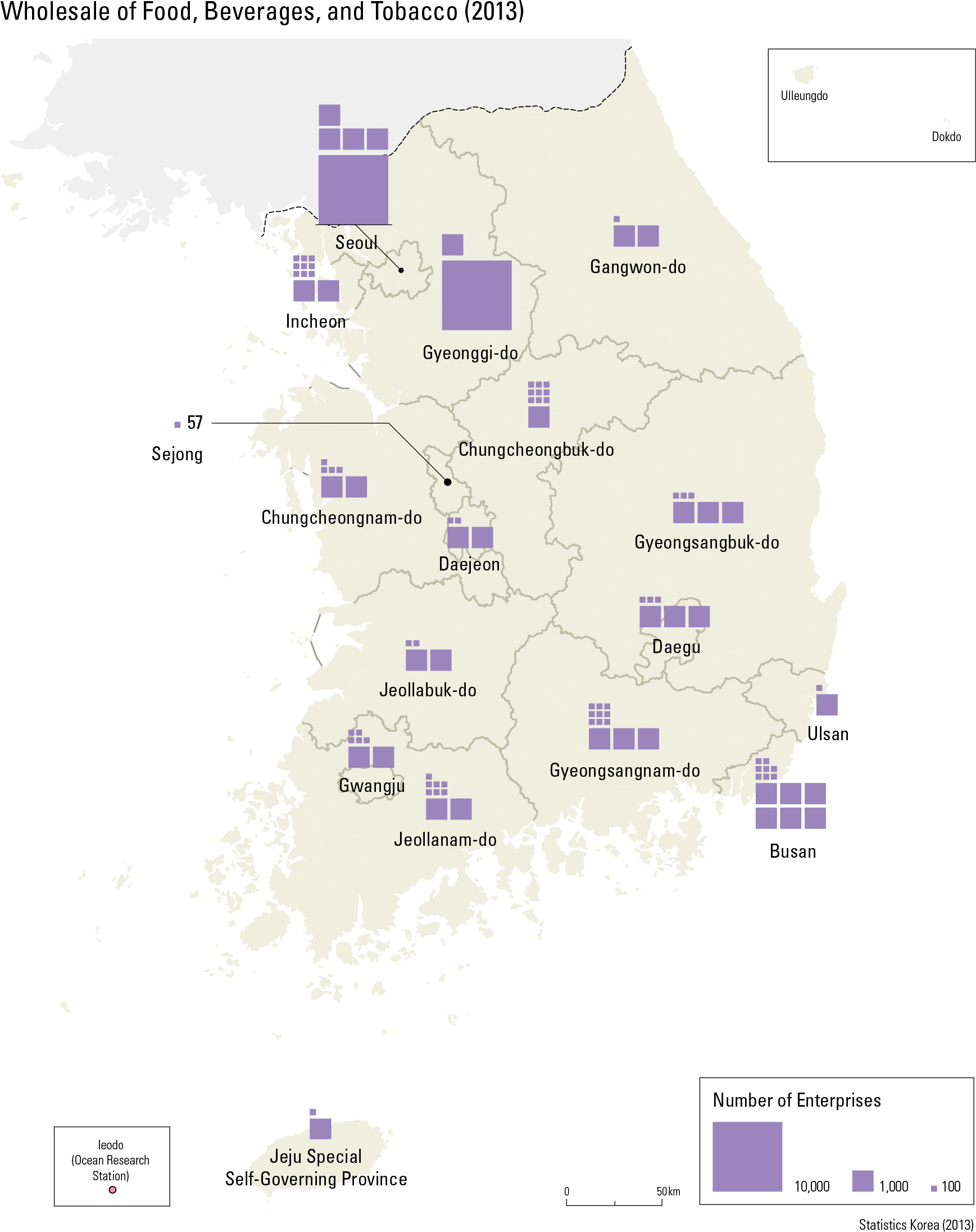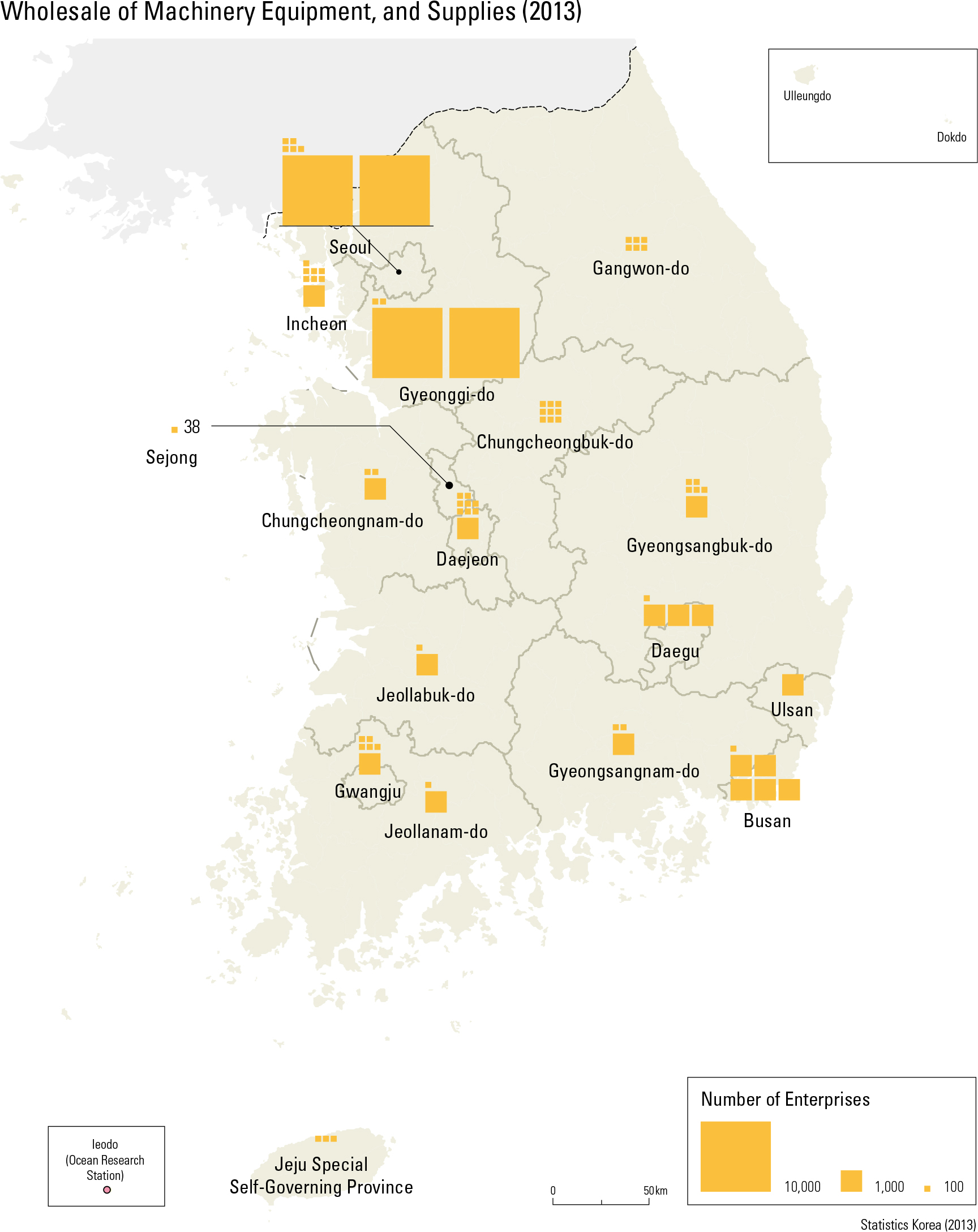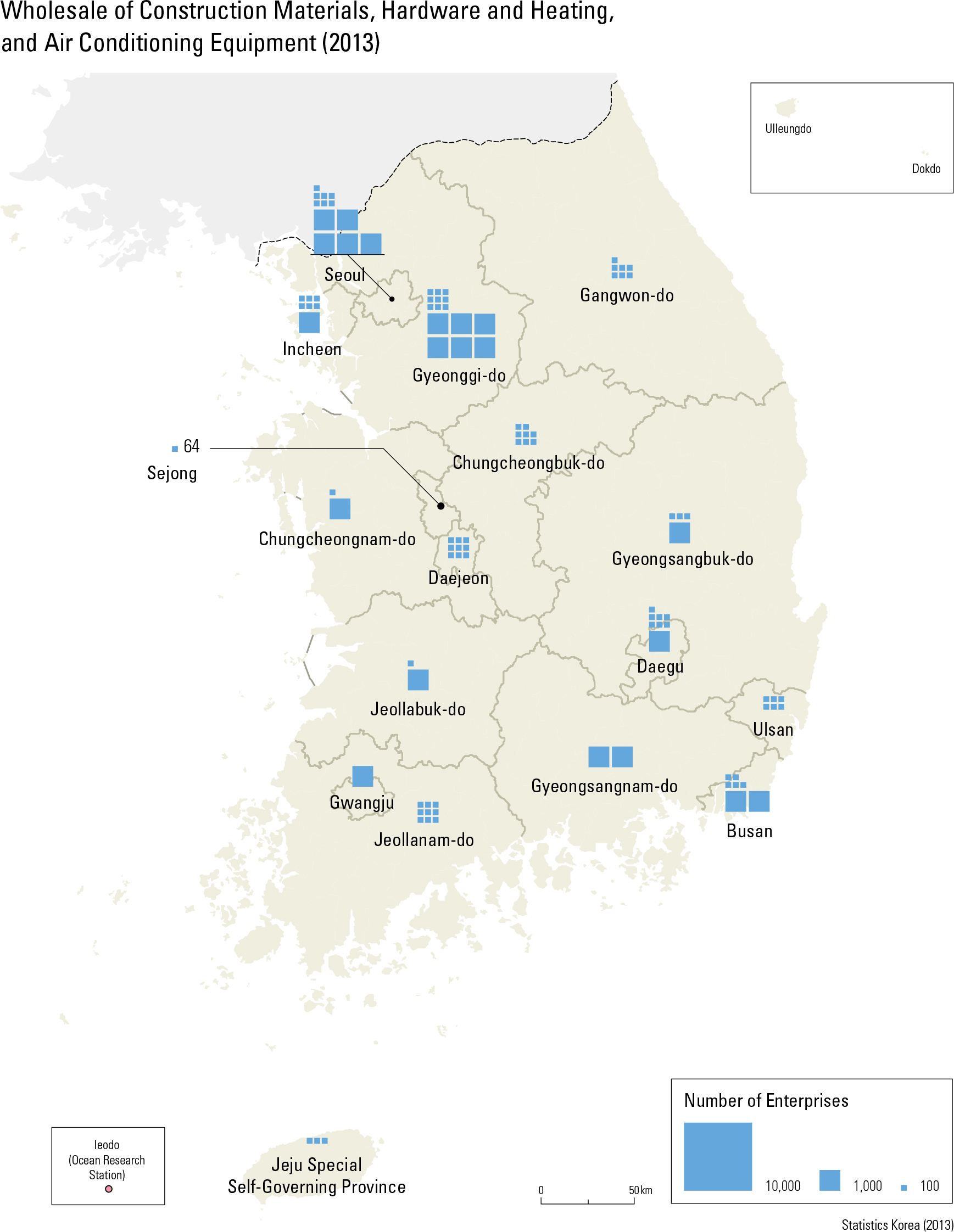English III
With the growth of manufacturing, the economy expands and income level improves; the volume of commodities transacted domestically and inter- nationally become larger and more diverse. The distribution industry is one of the original service sectors that connects producers with consumers. Wholesale trade refers to economic activities for which middlemen conduct business for the pur- pose of resale to retailers, or to manufacturers, construction builders, and restaurant operators who utilize the raw material. Unlike retail trading, wholesalers do not deal with individuals or nal consumers, but instead trade fewer items in large quantities. In 2013, the number of wholesaling businesses amounted to 8.5 % of the total service industry, and employed 7.8% of the total number of service workers. The overall trend for wholesale indus- tries in the late 1990s showed that with the excep- tion of two short economic setbacks, the whole- saling industries had grown continuously. The geographical distribution of wholesalers indicates that most of them are located in major metropoli- tan areas and their vicinities that have the highest purchasing power and the greatest demand for wholesale trade.Wholesaling can be further divided into catego- ries of food and beverage, cigarette wholesaling, household goods wholesaling, mechanical equip- ment and related goods wholesaling, construction material, steel goods, and heating equipment. Wholesaling traders tend to be located closer to the consumers than to the producers. The distri- bution of wholesalers of typical consumer goods — food and beverage and household goods — is very close to the population concentration. Usu- ally, the large wholesale markets are divided by cities and provinces so that they tend to be locat- ed at the edges of or adjacent to their designated cities and provinces. On the other hand, wholesale traders that deal with mechanical equipment and related products tend to be located near industrial parks. Traditionally, wholesale markets that deal with construction materials, steel goods, and heat- ing equipment tend to be located in large cities that have a higher demand for construction. With the fast suburbanization process, they tend to be located in the exurbs and suburbs of metropolitan areas where most of new construction takes place.
page_2 |
